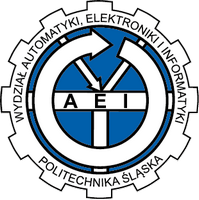Start - INZ TELE – Teleinformatics
Teleinformatics (TI), engineering studies (full-time)
Characteristics
Telecommunications and information technology are currently closely related areas, the development of which has significant impact on the vision of modern world. It is impossible to imagine telecommunications without modern informatics engineering, while information processing is often closely related to its transmission. In telecommunications, computer aided tools are widely used, including methods for processing, storing and displaying information, as well as for managing traffic in telecommunications networks. On the other hand, computer science uses advanced communications technologies in local and wide area computer networks. Data transmission media (wireless, wired and fiber optic), transmission protocols and network devices are used. In addition, the algorithms and devices of telecommunications and information technology often create common and uniform systems. Industrial networks in intelligent buildings, administration or banking, the Internet of Things (IoT), new generation mobile networks are all examples of systems referred to as ICT (Information and Communications Technology) or Teleinformatics. Their design and maintenance as well as their further development require specialized staff with knowledge in both communications and information technologies – specialists in the field of ICT are needed.
Teleinformatics graduates have the necessary knowledge in the field of informatics and telecommunications. They can utilize information technologies in telecommunications applications and take into account the latest telecommunications achievements in informatics applications. They have extensive knowledge and skills in the design, operation and testing of computer networks (wired and wireless), sensor networks, information system solutions, as well as telecommunications devices and systems. They have the necessary qualifications for the administration of ICT systems and as specialists in the field of computer systems and network security. Graduating Teleinformatics, they become experts in the two dynamically growing, interdependent areas.
Student profile
The Teleinformatics studies are intended for people demanding interdisciplinary knowledge of computer science, telecommunications, information technology and electronics. People with science skills as well as those with technical abilities are predisposed for these studies. It is advisable to be willing to learn programming and be interested in designing ICT and electronic systems, primarily digital circuits development.
Prerequisites
Engineering studies in this field do not require initial professional qualifications (except for the matriculation examination).
Issues
Engineering studies last 7 semesters (3.5 years) and end with an engineering thesis.
Students majoring in TI first receive theoretical preparation in mathematics and physics as well as basic technical subjects from the areas of computer science, electronics and telecommunications.
They then gain knowledge in computer science related major subjects such as:
- operating systems,
- computer architecture,
- software engineering,
- microprocessor and embedded systems,
- databases,
- computer graphics,
- computer networks,
telecommunication subjects such as:
- wireless networks,
- telecommunication systems design,
- network and system security,
- mobile subscriber devices,
- cryptography,
- fibre optic technology,
- sensor networks,
as well as in the field of microprocessor systems and embedded systems and programmable logic devices (FPGA) technology.
Specializations
The engineering degree program in Teleinformatics is not divided into specializations.
Graduate profile
Qualifications obtained during the studies allow to get employment in the IT or telecommunications industry, in particular:
- in companies developing and implementing modern telecommunications solutions,
- in business entities creating and operating ICT systems,
- telecommunications and computer network operators as well as companies creating software for these operators,
- Internet service providers,
- in companies producing IT and telecommunications equipment.
After obtaining the degree of engineer, graduates may immediately begin masters studies in the same field. Graduates with scientific and research interests, after obtaining the master's degree, may apply for admission to the Faculty's four-year third-degree (doctoral) studies in the discipline of computer science or electronics.









